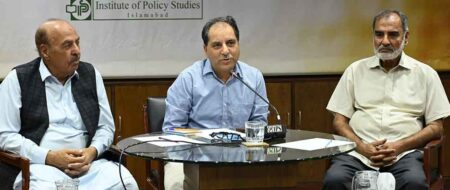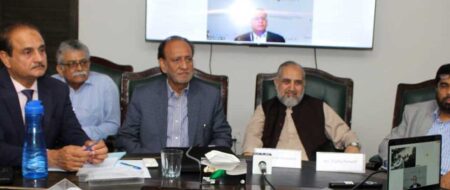Education in Balochistan
Session highlights less celebrated achievements of Balochistan in education sector
Reflecting upon the present state of education in Balochistan, the educationists and subject experts reviewed various initiatives taken by the Balochistan government in recent past, urging for the recognition of well-intended efforts made by the province’s incumbent authorities to resolve the issue.
They were speaking at the session ‘Education in Balochistan’ held at the Institute of Policy Studies (IPS), Islamabad on May 19, 2015. The session was addressed as keynote speaker by advisor to CM Balochistan on Education, Sardar Muhammad Raza Khan Barech, while the other speakers included Nadir Gul Barech, CEO, Balochistan Rural Support Program (BRSP) and DG-IPS Khalid Rahman.
Nadir presented the education-specific background of the province as well as its SWOT analysis. Terming the province’s area, youth population, mineral resources and the coastal line as few of its major strengths, he identified meagre population per square kilometer (only 19 persons), the overwhelming majority of which was living below the poverty line, the lack of infrastructure, the untapped or underutilized resources, region’s internal conflict-ridden history and the spill overs from neighboring countries as the major hurdles in planning and executing any type of strategies for region’s sustainable growth and development.
The speaker lamented that there existed a large number of out of school children in the province whereas the drop-out rate of school-going children was also quite alarming. The transition rate from primary school children graduating to the middle schools was another very big concern. The number of schools in the province, if compared to its requirements, was also highly insufficient whereas as many of those schools were being operated on ‘single teacher multi-grade’ system’.
Sardar Raza concurred with Nadir’s concerns but positioned that despite all the difficulty, a lot of steps were already being taken to improve the situation. He especially expressed his gratitude towards the federal government, which was taking keen interest in the development of education sector in Balochistan.
Directing attention towards few of Balochistan government’s achievements in the past two years, Raza highlighted the allotment of more budget for education, establishment of 500 new schools, induction of over one lac students into schools, the ‘accelerated pathways’ program to attract over-aged children towards schooling, hiring of teachers through National Testing Service (NTS) tests to ensure merit fulfillment, teacher’s performance evaluation mechanisms, establishment of facilities for technical education and skill development, establishment of colleges and universities, specially to cater the needs of medical and agriculture sectors, the establishment of private school regulatory authority, etc., as few of its worthy initiatives.
He also pointed at the development of Education Information Management System (EIMS), which aimed at mapping, coding and profiling of province’s schools, teachers and students to track and monitor the progress, and the establishment of Policy Planning and Implementation Unit (PPIU), a body comprising field experts to coordinate, facilitate and compliment the efforts of the Education Department for development of Education, as significant steps in the right direction.
DG-IPS Khalid Rahman concluded the session stressing on the need of highlighting the positives instead of discussing only the negatives, stating that such a practice would not only improve the prevailing dispirited environment in the country but also encourage the authorities to build on their initiatives further.












